Quartz countertops have become increasingly popular in modern kitchen designs due to their durability, versatility, and aesthetic appeal. However, one important consideration when choosing quartz countertops is their thickness. The thickness of quartz countertops can impact their performance, longevity, and overall look. let’s discuss the factors that determine how thick quartz countertops should be.
Standard Thickness: The standard thickness for quartz countertops ranges from 1.2 centimeters (cm) to 3 cm. This range is suitable for most residential applications and offers a balance between functionality and visual appeal. Thicker countertops tend to be more robust and resistant to damage, while thinner ones provide a sleeker, more contemporary look.
Durability and Strength: Thicker quartz countertops are generally more durable and resistant to chipping and cracking. A 3 cm thickness is recommended for high-traffic areas, such as kitchens, where the countertop is more likely to experience heavy use and potential impact. Thicker countertops also provide better support for overhangs, reducing the risk of breakage.
Weight Considerations: It’s important to consider the weight of quartz countertops, especially when installing them on cabinets or islands. Thicker countertops can be significantly heavier, requiring additional support structures to bear the load. Thinner countertops are lighter and may be more suitable for installations where weight is a concern.
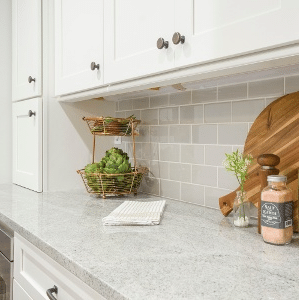
Edge Profiles: The thickness of quartz countertops can affect the appearance of various edge profiles. Thicker countertops allow for more intricate edge designs, such as ogee or bullnose, which can add elegance to the overall look. Thinner countertops are better suited for simpler edge profiles, like beveled or straight, providing a more minimalist aesthetic.
Aesthetic Preference: The thickness of quartz countertops also depends on personal preference and the desired visual impact. Thicker countertops create a bold and substantial presence, while thinner ones offer a more streamlined and contemporary look. Consider the overall design style of your kitchen to determine the appropriate thickness that complements the space.
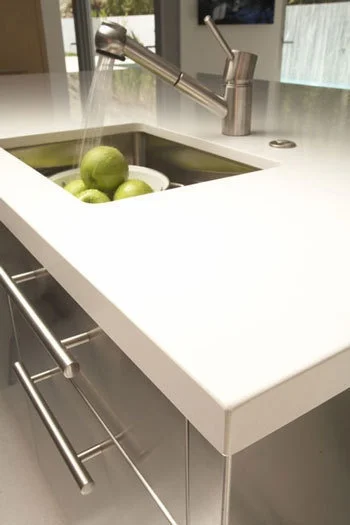
Cost Considerations: Thicker quartz countertops generally cost more than thinner ones due to the additional material required. The cost of installation and fabrication may also be higher for thicker countertops, as they require specialized tools and techniques. It’s essential to balance your budget with your desired thickness to achieve the best value for your investment.
Backsplash Compatibility: When choosing the thickness of your quartz countertops, consider how they will integrate with the backsplash. Thicker countertops may require modifications or adjustments to ensure a seamless transition between the countertop and the backsplash. Thinner countertops offer more flexibility in terms of installation and alignment.
Seam Visibility: Seam visibility can be a concern, especially for larger countertops or complex kitchen layouts. Thicker countertops tend to have more visible seams due to their weight and handling requirements during installation. Thinner countertops may offer a more cohesive and seamless appearance, with less noticeable seams.
Maintenance and Cleaning: The thickness of quartz countertops does not significantly affect their maintenance or cleaning requirements. Regardless of thickness, quartz countertops are non-porous and resistant to stains, making them easy to clean and maintain. Follow the manufacturer’s guidelines for routine care and cleaning to ensure their longevity.
Customization Options: Quartz countertops can be customized to various thicknesses beyond the standard range, depending on specific project requirements. Thicker or thinner options may be available upon request, allowing for greater design flexibility and customization.

Choosing the right thickness for quartz countertops involves a careful balance between functionality, durability, aesthetics, and budget considerations. While the standard thickness range of 1.2 cm to 3 cm caters to most residential needs, it’s essential to evaluate individual project requirements and personal preferences. Consulting with a professional countertop installer can provide valuable insights and guidance in determining the ideal thickness for your quartz countertops.
Things You Should Know About Installing Quartz Kitchen Countertops
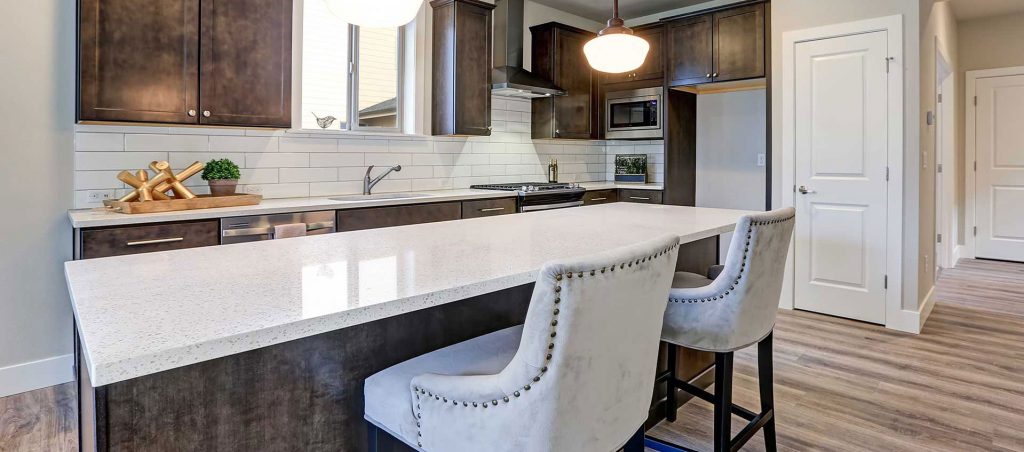
Thick White Quartz Countertops Design Ideas

Thickness of Quartz Countertops: How Thick Should It Be? Granite
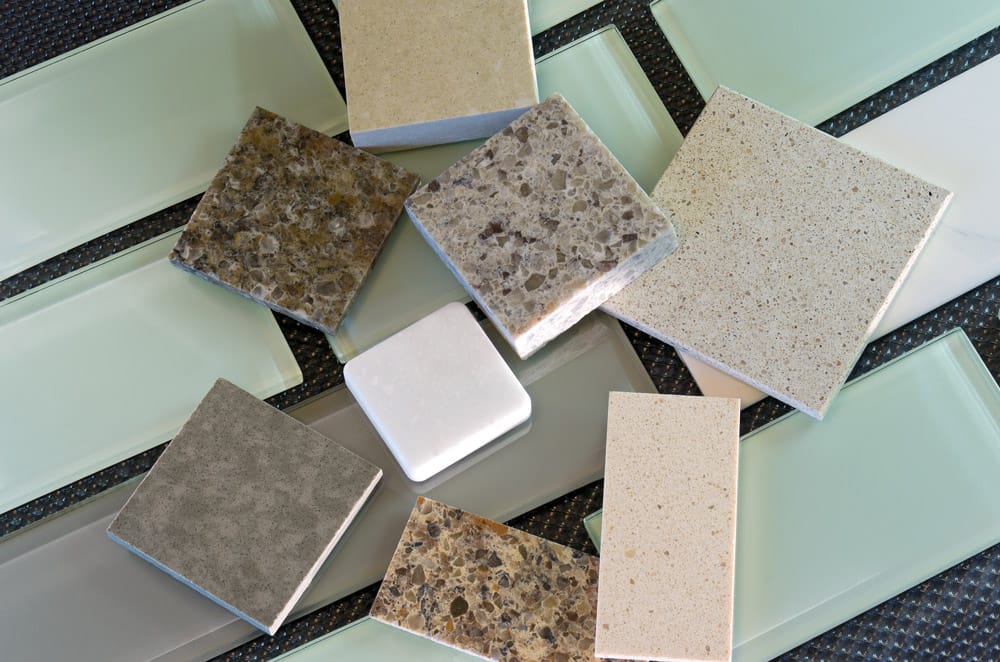
Learning the Facts About Quartz Countertops – Granite Expo
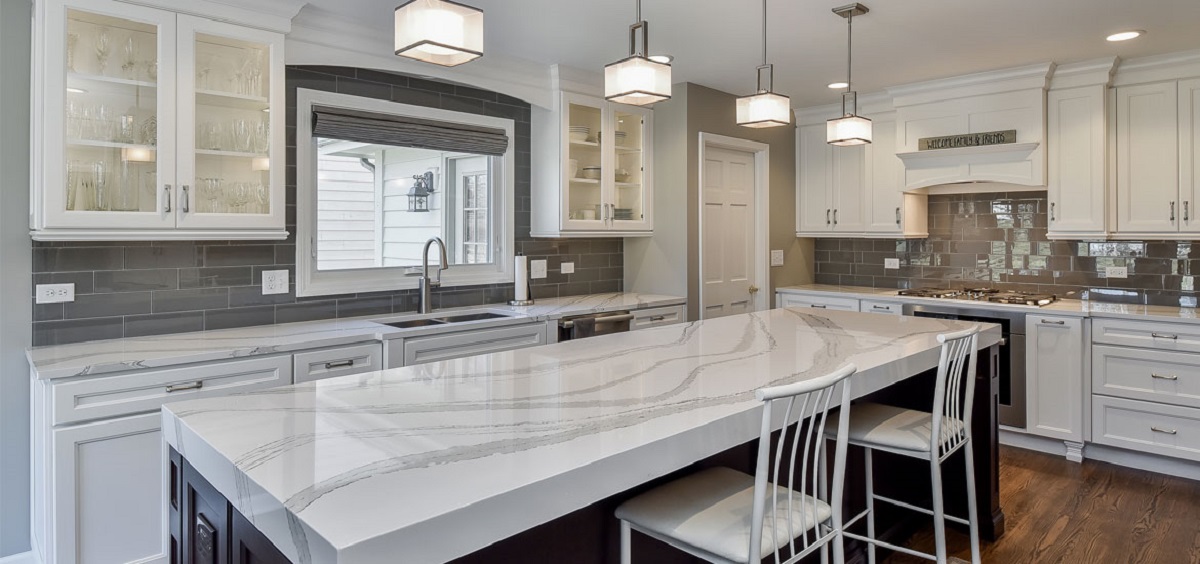
HanStone Quartz USA Quartz Countertop Thickness: 7 Tips for

Related articles:
- Beveled Edge Quartz Countertop
- Quartz Countertop Choices
- Quartz Countertop Types
- Grey Brown Quartz Countertops
- Quartz Countertops Pattern
- Quartz Countertops DIY
- Kitchen Island Quartz Countertop
- Quartz Countertops In Bathroom
- White Engineered Quartz Countertops
- Artificial Quartz Countertops